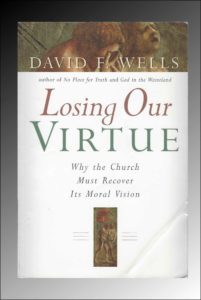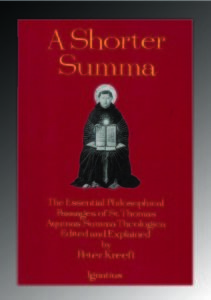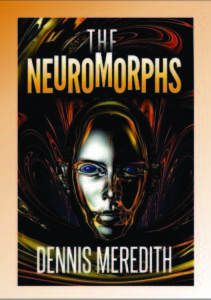Stephen W. Hiemstra's Blog, page 197
November 9, 2018
Community
 “Behold, how good and pleasant it is
“Behold, how good and pleasant it is
when brothers and sisters dwell in unity!”
(Ps 133:1)1
By Stephen W. Hiemstra
The word for church in Greek commonly used in the New Testament is: ecclesia (ἐκκλησίας; Jas. 5:14 BNT) The word literally means called out ones.2 The Apostle Paul, for example, writes:
“To the church of God that is in Corinth, to those sanctified in Christ Jesus, called to be saints together with all those who in every place call upon the name of our Lord Jesus Christ, both their Lord and ours.” (1 Cor. 1:2)
Paul’s usage conveys the idea of connection through Christ which Bonhoeffer (1995, 226) underscores in writing: “The preaching of the Church and the administration of the sacraments is the place where Jesus Christ is present.” Bonhoeffer’s statement echoes Christ’s own words (e.g. John 6:56).
Priesthood of All Believers
While this idea of the called out ones today evokes the image of a seminary, where everyone is specifically called to ministry, every member of the church is called to faith and ministry. As with Abraham, we are blessed to be a blessing to others (Gen 12:1-3). In this way, we are all priests serving under our great high priest, Jesus Christ, and are able to approach God through him (Heb 7:25).
Although the doctrine of the priesthood of all believers is often interpreted narrowly to mean that church members should invite their neighbors and friends to church, the Apostle Peter links this priestly function specifically to sanctification:
“So put away all malice and all deceit and hypocrisy and envy and all slander…As you come to him, a living stone rejected by men but in the sight of God chosen and precious, you yourselves like living stones are being built up as a spiritual house, to be a holy priesthood, to offer spiritual sacrifices acceptable to God through Jesus Christ.” (1 Pet 2:1-5)
Note how he begins these verses with with a call to purity. Is it any wonder that scripture likens the church to a marriage?
The Scriptural Prominence of Marriage and Relationship to the Church
The prominence of marriage in scripture is unmistakable—the Bible begins and ends with a marriage—suggesting that marriage is God’s idea, not ours (Keller 2011, 13).
Beginning in the Book of Genesis, we see a couple, Adam and Eve who are just made for each other and whose relationship is more important than the man’s relationship with his family. (Gen 2:24) This idea that a man’s wife was more important than his family of origin was unthinkable in the ancient near east where siblings, not spouses, were one’s closest confidants (Hellerman 2001, 36).
Jesus treats the creation account of Adam and Eve as foundational in his teaching on divorce and remarriage. From the prospective of advocates of no-fault divorce, he significantly ignores the Law of Moses, which admits exceptions in divorce. If marriage is instituted by God in creation, then divorce cheapens marriage and is obviously not divinely sanctioned. More importantly, the formative aspects of marriage disappear if marriage only survives on sunny days.
Ending in the Book of Revelation, an angel informs us: “Blessed are those who are invited to the marriage supper of the Lamb.” (Rev 19:9) The church, which was betrothed to Christ on earth, is finally married to Christ in heaven. Because Revelation depicts many pictures of Christian worship in heaven with robes, trumpets, singing, prayer, visions, and processions, the analogy between marriage and the church is most explicit.
The Formative Characteristics of Marriage
If the church’s relationship with Christ is compared to marriage, then what aspects of marriage are we talking about?
The Apostle Paul highlights the formative character of marriage in his comments on mixed faith marriages. Paul reports that the believing spouse renders the whole marriage holy for the children (1 Cor 7:12–14). Paul also sees marriage as a witnessing opportunity. Paul asks: “For how do you know, wife, whether you will save your husband? Or how do you know, husband, whether you will save your wife?” (1 Cor 7:16) In other words, Paul clearly sees marriage possessing a sacrificial component.
If marriage is formative, how does it draw us closer to God? At least three examples can be cited.
The first example is that God instituted marriage and commissioned marriage with a blessing and mandate: “Be fruitful and multiply and fill the earth and subdue it, and have dominion . . .” (Gen 1:28) God created marriage, blessed it, and said it was good—obeying God must draw us closer to him.
The second example is that it starts with an unconditional promise. God is the eternal promise keeper. In marriage we imitate our creator. Making and keeping good promises—even when it hurts—transforms us and draws us closer to God.
The third example marriage is that it makes us accountable. Our spouses know us in the biblical (covenantal) way! Our weaknesses and sin affect our spouses and they tell us. We sin less, in part, because our spouses make us more aware of our sin—a sanctification process that forms us—even if we are not believers! Part of this process is to learn reconciliation skills by practicing them daily. As the Apostle Paul wrote: “And whatever you do, in word or deed, do everything in the name of the Lord Jesus, giving thanks to God the Father through him.” (Col 3:17)
This list of reasons why marriage is formative is especially interesting because God instituted marriage even before he instituted the nation of Israel or sent his son to die on the cross. God is not irrational. He knows that the biggest beneficiaries of marriage are our children. And he loves them as much as he loves us and, of course, as Christians we all God’s children.
Formation of Character in Community
Just like in marriage, our Christian character is formed in relationship. Our first relationship in life is with our families. In faith, our relationship is with each of the three members of the Trinity—Father, Son, and Holy Spirit. Reinforcing these other relationships is our relationship with the church. Out of these relationships we develop a Christian identity that, in turn, becomes the basis for how we act.
The postmodern tendency is to play down the role the importance of Christian formation, especially in leadership, because of a deficient doctrine of sin and neglect of the heart. The New Testament treats the heart as a shorthand for the whole person—heart, mind, and soul. Sin begins in the heart and emanates into action. Acting out sin, in turn, pollutes the heart making future sin more likely, which is why the Bible treats sin not as an act, but as an act of rebellion. This polluting characteristic of sin undermines our Christian formation making the formative activities in the church all the more important.
Formed as we are in Christian relationships, our ethics arise from family, faith, and community of faith. As we mature in our faith, we naturally assume a leadership role in each of these domains.
Footnotes
1 Beginning Life Together with this scripture passage marked Dietrich Bonhoeffer as a dissenter in Nazi Germany where the Old Testament was considered un-German and Jewish (Metaxis 2010, 367-368)
2 Outside the church, it is also translated as assembly, as in a meeting of representatives or elected officials.
References
Bonhoeffer, Dietrich. 1954. Life Together: The Classic Exploration of Christian Community (Gemeinsames Leben). Translated by John W. Doberstein. New York: HarperOne.
Bonhoeffer, Dietrich. 1995. The Cost of Discipleship (Orig Pub 1937). Translated by R. H. Fuller and Irmgard Booth. New York: Simon & Schuster—A Touchstone Book.
Hellerman, Joseph H. 2001. The Ancient Church as Family. Minneapolis: Fortress Press.
Keller, Timothy and Kathy Keller. 2011. The Meaning of Marriage: Facing the Complexities of Commitment with the Wisdom of God. New York: Dutton.
Metaxis, Eric. 2010. Bonhoeffer: Pastor, Martyr, Prophet, Spy. Nashville: Thomas Nelson.
Community
Also see:
Preface to Living in Christ
A Roadmap of Simple Faith
Christian Spirituality
Looking Back
Other ways to engage online:
Author site: http://www.StephenWHiemstra.net, Publisher site: http://www.T2Pneuma.com.
Newsletter: http://bit.ly/2018_Character
The post Community appeared first on T2Pneuma.net.
November 6, 2018
Wells Exercises Moral Vision, Part 1
 David Wells. 1998. Losing Out Virtue: Why the Church Must Recover Its Moral Vision. Grand Rapids: Eerdmans. (Goto Part 2 after November 13)
David Wells. 1998. Losing Out Virtue: Why the Church Must Recover Its Moral Vision. Grand Rapids: Eerdmans. (Goto Part 2 after November 13)
Review by Stephen W. Hiemstra
One of the most difficult things that I have done in my life was to work with integrity as an economist in financial regulation and actually measure and report on the risk being taken by the institutions under our supervision. I likened my job as being a lifeguard hired to watch people drown. The better my team got at actually doing our jobs, the more trouble we found ourselves getting into. When I threw up my hands and left my well-paid career to enter seminary, I discovered that much the same environment engulfed the pastors that I worked with.
Introduction
In David Well’s Losing Out Virtue, he writes:
“In the language we use to understand ourselves and our world is not simply a matter of words. It is the result of the interactions of many other factors…In this engagement, I shall argue that is now framing life in such a way that the most important part of self-understanding—that we are moral beings—has been removed from the equation. That is the beguilingly simple thesis I shall be pursuing: functionally, we are not morally disengaged, adrift and alienated; we are morally obliterated. We are, in practice, not only morally illiterate; we have become morally vacant.”(13)
Well’s goes on to observe:
“For over two thousand years, moral conduct was discussed under the language of virtues. First Plato and then Aristotle talked about the cardinal, or foundational, virtues. These were justice (or rectitude), wisdom, courage (or fortitude), and moderation (or self-control) …. The importance of the classical view of the virtues was that moral conduct was seen to be the outcome of character, and it was considered entirely futile to divorce inward moral reality from its exercise in the society or community in which a person lived.”(14)
Obviously, having morals in the classical sense meant much more than simply being able to keep one’s pants on. In a world where virtually every adult male served in the military (as is true in small counties today), hand-to-hand combat quickly tested at least one’s courage and other virtues. Following this train of thought, Hauerwas and WIllimon (2014, 35) write: “States, particularly liberal democracies, are heavily depend on wars for moral coherence.”
What Makes the Postmodern Era Different?
Wells observes four distinctives of the postmodern period:
“We are seeing on an unprecedented scale the birth of a world civilization…
Ours is the first major civilization to be building itself deliberately and self-consciously without religious foundations…
Our experience of modernity is intense to an unparalleled extent…
As a result of these factors that are unique to our time, we are seeing on an unprecedented sale, a mass experimentation with new values.” (23-27)
Note that Wells is using the term, modernity, to apply primarily to what I would call the postmodern period. Changes that might have taken generations during the modern period (1800 through 1960) have been compressed into just a few years during the postmodern period (since 1960).
Recovering our Moral Vision
Wells sees the church needing to undertake two things in recovering its moral vision. The first thing is:
“it will have to become courageous enough to say that much that is taken as normative in the postmodern world is actually sinful and it will have to exercise new ingenuity in learning how to speak about sin to a generation for whom sin has become an impossibility.”(179)
In the twenty years since Wells penned these words, little evidence can be cited to suggest that the church has taken up this first challenge. The second thing is:
“the church itself is going to have to become more authentically morally, for the greatness of the Gospel is now seen to have become quite trivial and inconsequential in its life.”(180)
Again, there is little evidence that the church has taken up this second challenge. As a general rule, the church has not staked out morally as a field that it even attempts to play on. If anything, it has run away from teaching morality which is often associated with the folk ways of the builder and boomer generations rather than a challenge facing every generation equally.
Background
Dr. David Wells is a Distinguished Senior Research Professor at Gordon-Conwell Theological Seminary (GCTS) in South Hamilton, Massachusetts. Born in Bulawayo, Southern Rhodesia (now Zimbabwe), Wells is a graduate of University of London with a masters from Trinity Evangelical Divinity School and a doctorate from Manchester University, England. He is the author of numerous books.
As a GCTS graduate myself, Wells taught one of my New Testament courses and I read this book before taking the class to acquaint myself with his work, as was my custom in seminary.
Organization
Wells writes in these chapters:
A Tale of Two Spiritualities
The Playground of Desire
On Saving Ourselves
The Bonfire of the Self
Contradictions
Faith of the Ages
These chapters are preceded by a preface and introduction and followed by a bibliography and indices.
Assessment
In part one of this review, I have focused on summarizing Wells’ basic argument. In part two I will examine his arguments in more depth.
David Wells’ Losing Our Virtue focuses on the question of Christian morality in the postmodern period better known for its sexual obsessions and liberality. As leaders in all aspects of society, from our politicians to our academics to entertainment to the church, crash and burn in moral failures in daily news accounts, Wells’ stark assessment of postmodern morality rings ever truer. This is a book desiring of more attention from academics to frontline pastors.
Footnotes
https://www.gordonconwell.edu/academi....
References
Hauerwas, Stanley and William H. Willimon.2014. Resident Aliens: A Provocative Christian Assessment of Culture and Ministry for People Who Know that Something is Wrong (Orig pub 1989). Nashville: Abingdon Press.
Wells Exercises Moral Vision, Part 1
Also see:
Books, Films, and Ministry
Other ways to engage online:
Author site: http://www.StephenWHiemstra.net, Publisher site: http://www.T2Pneuma.com.
Newsletter: http://bit.ly/2018_Character
The post Wells Exercises Moral Vision, Part 1 appeared first on T2Pneuma.net.
November 5, 2018
Character, Monday Monologues, November 5, 2018 (podcast)
 Stephen W. Hiemstra, 2017
Stephen W. Hiemstra, 2017By Stephen W. Hiemstra
In today’s podcast, I pray over formation and talk about Character.
After listening, please click here to take a brief listener survey (10 questions).
To listen, click on the link below.
https://t2pneuma.net/wp-content/uploads/2018/11/Monday_monologue_character_11052018.mp3
Hear the words; Walk the steps; Experience the joy!
Character, Monday Monologues, November 5, 2018 (podcast)
Also see:
Monday Monologue On March 26, 2018
Other ways to engage online:
Author site: http://www.StephenWHiemstra.net, Publisher site: http://www.T2Pneuma.com.
Newsletter: http://bit.ly/2018_Character
The post Character, Monday Monologues, November 5, 2018 (podcast) appeared first on T2Pneuma.net.
November 4, 2018
Formation Prayer
 By Stephen W. Hiemstra
By Stephen W. Hiemstra
Heavenly Father, Beloved Son, Holy Spirit,
All glory and praise be to you,
for you formed me in my mother’s womb,
nurtured me as a child, and
strengthened me into an adult
guiding my family, my church, and my many mentors.
I confess that I did not always listen or
cooperate in my youthful growth.
Forgive my resistance even today
to your still, small voice
even as our culture screams in my ears
and tempts my eye in a thousand ways.
I give thanks that you are patient and did not turn
from helping form in your image.
Be ever near;
guard my heart and mind.
In Jesus’ precious name, Amen.
Formation Prayer
Also see:
Books, Films, and Ministry
Other ways to engage online:
Author site: http://www.StephenWHiemstra.net, Publisher site: http://www.T2Pneuma.com.
Newsletter: http://bit.ly/2018_Character
The post Formation Prayer appeared first on T2Pneuma.net.
November 2, 2018
Character
 “You did not choose me, but I chose you and
“You did not choose me, but I chose you and
appointed you that you should go and bear fruit”
(John 15:16)
By Stephen W. Hiemstra
What is a Christian?
Is a Christian someone who has been baptized and confirmed or is it someone who draws closer to Christ with each passing day? The formalities of baptism and confirmation mark Christendom and the institutional church while the relational act of drawing closer to Christ is often associated with the Jesus (or pietist) movement.1 Mission circles actively debate this question, in part, because formal church membership acts can bring persecution, arrest, and even death.
The Ancient Church
For scripture and for the ancient church, formality or relationship posed a false dichotomy. Jesus invited his disciples into relationship a long time before the church even existed:
“As Jesus passed on from there, he saw a man called Matthew sitting at the tax booth, and he said to him, ‘Follow me.’ And he rose and followed him.” (Matt 9:9)
Still, even Jesus insisted on some formalities:
“So everyone who acknowledges me before men, I also will acknowledge before my Father who is in heaven, but whoever denies me before men, I also will deny before my Father who is in heaven.” (Matt 10:32-33)
Later on the church’s indoctrination could take years before a new believer underwent baptism, suggesting that baptism was not a mere formality. Clearly, the early church took discipling seriously and engaged the inner life of the disciple beyond the reciting of a few Bible verses and a confessional statement.
Character Versus Personality
In his study of today’s moral dilemma facing the church, Wells makes a distinction between character, which arises from our inner life and virtues, and personality, which focuses on outward appearances. He writes:
“Today, we cultivate personality (a word almost unknown before the twentieth century) far more than we do character, and this is simply the concomitant to the way in which values have come to replace the older sense of virtue…Character is good or bad, while personality is attractive, forceful, or magnetic.” (Wells 1998, 96-97)
In some sense, the “hollowing out of the self” began with this emphasis on exterior characteristics and is exemplified by the rise of celebrities over heroes. Wells notes, citing Daniel Boorstin:
“The hero was distinguished by his achievement; the celebrity by his image or trademark. The hero created himself; the celebrity is created by the media.” (Wells 1998, 100)
The focus on external appearances and the neglect of the inner life are akin to devaluing our experience of God, even if we believe that we take faith seriously. Wells observes:
“If the narcissist classically has a shrunken, fragmentary self, our culture has similarly become hollowed out and lost its core. If the narcissist covers up the emptiness by exaggerated self-importance and fantasies of power, our culture is covering up its hollowness by fads and fashions, ceaseless consuming, and the constant excitement of fresh sexual conquest.” (108)
While someone of strong moral character has no need of “buzz,” personality addicts live for public approval. Pastors are not the ones often guilty of being people pleasers. In Washington, the joke is that most dangerous place to stand is between a particular congressional representative (or senator or president) and the television cameras.
Looking Beyond Personality
In the midst of a culture that constantly shouts at us, it can be hard to hear the still, small voice of God. If the shouting creates a crisis atmosphere that tempts us to ignore our inner life, to abandon our walk with Christ, and to evaluate our worth by secular standards, then our culture forms our character and our number one priority is not God, as required by the first Commandment (Exod 20:3-5). We commit idolatry and our identity lies in our family, work, gender, and other things.
Identity is critical to Christian ethical practice. Just like fire fighters who run into burning buildings, not away from them, our identities shape our actions. This makes character formation a priority for Christian families and the church.
Number One Priority
Jesus constantly talked about the heart and loving the right things—his way of talking about character formation and an allusion to the first Commandment—as we read:
“The good person out of the good treasure of his heart produces good, and the evil person out of his evil treasure produces evil, for out of the abundance of the heart his mouth speaks.” (Luke 6:45)
For the Hebrew, heart and mind are undivided, components of a unified whole, as we are reminded in the Shema, the Jewish Daily Prayer, “You shall love the LORD your God with all your heart and with all your soul and with all your might” (Deut 6:5) that Jesus repeats in his Greatest Commandment discourse (Matt 22:36-40).
If we act out of our identity, then obviously Christian ethics requires that we strive in our daily walk to make Christ our number one priority.
Footnotes
1 See, for example, (Gehrz and Pattie 2017).
References
Boorstin, Daniel J. 1962. The Image; or, What Happened to the American Dream. New York: Atheneum.
Gehrz, Christopher and Mark Pattie III. 2017. The Pietist Option: Hope for the Renewal of Christianity. Downers Grove: IVP Academic.
Wells, David. 1998. Losing Out Virtue: Why the Church Must Recover Its Moral Vision. Grand Rapids: Eerdmans.
Character
Also see:
Preface to Living in Christ
A Roadmap of Simple Faith
Christian Spirituality
Looking Back
Other ways to engage online:
Author site: http://www.StephenWHiemstra.net, Publisher site: http://www.T2Pneuma.com.
Newsletter: http://bit.ly/2018_Character
The post Character appeared first on T2Pneuma.net.
October 30, 2018
Kreeft Enlightens Aquinas’ Summa
 Peter Kreeft.1993. A Shorter Summa: The Essential Philosophical Passages of St. Thomas Aquinas’ Summa Theologia Edited and Explained. San Francisco: Ignatius Press.
Peter Kreeft.1993. A Shorter Summa: The Essential Philosophical Passages of St. Thomas Aquinas’ Summa Theologia Edited and Explained. San Francisco: Ignatius Press.
Review by Stephen W. Hiemstra
In college back in the 1970s, I felt compelled to read the classics of the Christian faith. That effort led me to explore authors such as Augustine, Edwards, Lewis, Little, and so on. Aquinas capped my quest and brought it to an end: where do you start and how do you get past the first page? Aquinas proved incomprehensible and I soon abandoned my effort.
Peter Kreeft’s A Shorter Summa begins:
“This is a shortened version of Summa of the Summa, which in turn was a shortened version of the Summa Theologiae (Summa Theologica). The reason for the double shortening is pretty obvious: the original runs some 3,000 pages…The Summa is certainly the greatest, most ambitious, most rational book of theology ever written.” (ii)
Perhaps, I was not the first student intimidated by Thomas Aquinas’ Summa Theologica!
Who is Peter Kreeft?
Peter Kreeft is a professor of philosophy at Boston College, a Jesuit (Catholic) university, and author of over seventy-five books. He is a graduate of Calvin College (1959). His masters and doctorates are from Fordham University (1961, 1965). He also did post-graduate studies at Yale University. He was raised in the Reformed Church in America, but later became a Roman Catholic.
Why Read Thomas Aquinas?
Kreeft believes that Aquinas is the greatest philosopher (Italian, 1225-1274) who ever lived and offers eight reasons:
Aquinas told the truth, which is the mark of a philosopher—one who loves knowledge.
Common sense. Aquinas’ ethics are in Kreeft’s view: “practical and plain and reasonable”
Aquinas was someone that popes and kings wrote to for advice.
Aquinas was someone who seems obscure at first but clearer with each reading.
Aquinas strived for clarity and focused on things that the average person wonders about—God, man, life, death, good and evil.
Kreeft writes: “Even non-Catholics must go to St. Thomas to understand Catholic theology and philosophy. You never understand a philosophy from its critics or dissenters.”
Aquinas epitomized the medieval mind.
Aquinas is a standard by which to highlight the modern era for all of its differences and weaknesses. (13-16)
At some point, I remember reading that while Augustine introduced the Christian world to Plato, in like manner Aquinas introduced Aristotle. While Plato focused on theoretical knowledge (transcendent), Aristotle focused on empirical knowledge revealed by the senses (immanent). Inasmuch as postmodern people have trouble with transcendence, the current focus on the immanent suggests that returning to Aquinas is especially important for postmoderns.
Postmoderns also seem to have trouble hearing each other’s perspectives, Aquinas respected his critiques and painstakingly argued both sides of a controversy in the Summa Theologicabefore offering his own conclusion.
More generally, Kreeft sees Aquinas as more of an encyclopedia than a textbook. (17) For those born after Wikipedia, an encyclopedia once provided an important resource that students would consult before striving to understand other resources.
Organization of the Summa
Kreeft outlines the Summa as a circle that begins and ends with God. The movements around the circle include:
God (at top)
His essence in terms of whether and how he exists and how he operates,
His three persons
Creation (left side)
Man (bottom)
Man’s return to God (Right side at bottom)
Christ—man’s way to return to God (right side further up)
Kreeft describes the Summa “not like information in a library, but like blood in a body.” He describes the Summa as written in a choppy style because arguments are divided up into bite-sized pieces. (18)
Organization of the Book
Kreeft sees his book as distinctive from other summaries of the Summa in four ways:
He focuses on Aquinas’ own words.
He relies on an older, literal Dominican translation.
He focuses only on the Summa. and
He includes numerous explanatory footnotes. (22)
He also writes for beginners in philosophy; leaves out arguments not interesting to modern discussion, and focuses on Aquinas’ chief arguments relevant to philosophy, not theology per se (ii).
Kreeft begins his book with a preface, introduction, and glossary, then writes his text in seven chapters:
Methodology: Theology as a Science
Proofs for the Existence of God
The Nature of God
Cosmology: Creation and Providence
Anthropology: Body and Soul
Epistemology and Psychology
Ethics(contents)
Not trained in philosophy, I found the glossary most helpful.
For example, I particularly enjoyed his definitions of a:
“syllogism: (1) logical argument; (2) especially a deductive argument; (3) especially a certain deductive argument with three terms, two premises, and one conclusion.” (35)
Uncertain over the years about the third definition, I felt badly about using the first one!
Explanations
Kreeft warns students to review their understanding of “basic, common sense logic”(19) and explains that Aquinas normally states his premises in a form capable of a yes-no answer. For example, in the first chapter on the Nature and Extent of Sacred Doctrine, he asks: “Whether, besides Philosophy, Any Further Doctrine is Required?”(39) He observes that the Summa is not so much a systematic theology, but a “summarized debate”(17).
Kreeft’s footnotes are worth their weight in gold. One footnote, for example, offers twenty-four arguments for God’s, starting with the ontological argument put forward by Anselm (56-58). Another gem highlights the three meanings of logos in Greek—intelligent being, intelligence, and communication—and how these three meanings inform the philosophical eras—metaphysics (ancient and medieval periods), epistemology (classical modern period), and language (contemporary period) (65-66).
Aquinas’ own arguments are priceless. For example, he argues that our happiness cannot be attributed to fame or glory because “for human knowledge is caused by the things known, whereas God’s knowledge is the cause of the things known.”(138)
Aquinas is also the source of a lot of wisdom that seems to float around today without an obvious source. For example, Aquinas argues that the four cardinal virtues are prudence, justice, temperance, and fortitude, while the three theological virtues are faith, hope, and love, as taken from1 Corinthians 13:13 (153-155).
Assessment
Peter Kreeft’s A Shorter Summa is a most helpful introduction to St. Thomas Aquinas’ Summa Theologica. For those of us exposed to Aquinas who never quite understood him, this is a wonderful little book. Philosophy and seminary students and working pastors will find this book interesting and useful. I wish that I had had this book back when I was in college.
References
Kreeft, Peter (Editor). 1990. A Summa of the Summaby Thomas Aquinas. San Francisco: Ignatius Press.
Kreeft Enlightens Aquinas’ Summa
Also see:
Books, Films, and Ministry
Other ways to engage online:
Author site: http://www.StephenWHiemstra.net, Publisher site: http://www.T2Pneuma.com.
Newsletter: http://bit.ly/2018_Character
The post Kreeft Enlightens Aquinas’ Summa appeared first on T2Pneuma.net.
October 29, 2018
Living Expectantly, Monday Monologues, October 29, 2018 (podcast)
 Stephen W. Hiemstra, 2017
Stephen W. Hiemstra, 2017By Stephen W. Hiemstra
In today’s podcast, I pray for justice and talk about Living Expectantly.
After listening, please click here to take a brief listener survey (10 questions).
To listen, click on the link below.
https://t2pneuma.net/wp-content/uploads/2018/10/Monday_monologue_Living_Expectantly_10292018.mp3
Hear the words; Walk the steps; Experience the joy!
Living Expectantly, Monday Monologues, October 29, 2018 (podcast)
Also see:
Monday Monologue On March 26, 2018
Other ways to engage online:
Author site: http://www.StephenWHiemstra.net, Publisher site: http://www.T2Pneuma.com.
Newsletter: http://bit.ly/2018_Character
The post Living Expectantly, Monday Monologues, October 29, 2018 (podcast) appeared first on T2Pneuma.net.
October 28, 2018
Praying for Justice
 Photo by Stephen W. Hiemstra
Photo by Stephen W. HiemstraBy Stephen W. Hiemstra
Almighty and Merciful Father,
All praise and honor be to you,
for you alone are justice and
plead the case for the immigrant, the widow, and the orphan
when our voices are silent.
We confess that too frequently look the other way,
preferring to tolerate murder and abuse
when our livelihood or pride is threatened or
we simply do not want to be bothered.
Forgive our hardened hearts,
but do not leave us in our state of sin.
Teach us to love the unloveable
reflecting your image and example.
We give thanks for your mercy and boundless generosity.
In the power of your Holy Spirit,
heal our cold hearts and
grant us the strength to walk in your ways.
In Jesus’ precious name, Amen.
Praying for Justice
Also see:
Books, Films, and Ministry
Other ways to engage online:
Author site: http://www.StephenWHiemstra.net, Publisher site: http://www.T2Pneuma.com.
Newsletter: http://bit.ly/2018_Character
The post Praying for Justice appeared first on T2Pneuma.net.
October 26, 2018
Living Expectantly
 By Stephen W. Hiemstra
By Stephen W. Hiemstra
Moral confusion pervades postmodern culture. This confusion directly threatens our persons and our way of life. While the Christian starts every conversation about morality with God, we can just as easily begin by observing that morality reflects not only a divine edict but the revealed experience of human beings struggling to make sense of life and survive in a sinful world.
Normalization of Drugs
While our minds normally gravitate towards immoral sexual activity when moral confusion is discussed, the normalization of drug use probably makes the point even more clearly. According to a recent survey by the federal government:
“In 2014, 27.0 million people aged 12 or older used an illicit drug in the past 30 days, which corresponds to about 1 in 10 Americans (10.2 percent). This percentage in 2014 was higher than those in every year from 2002 through 2013.” (CBHSQ 2015, 1)1
What is the response of the body politic to this serious social crisis? Because most drug use involves marijuana, Alaska, California, Colorado, Maine, Massachusetts, Nevada, Oregon, Vermont, and Washington DC have as of this date legalized recreational use of marijuana.2 This response suggests that, in spite of the negative medical impacts of marijuana use and almost universal opposition from police departments around the country, a majority of voters in these states approve of these legal changes.
Negative Impacts of Drugs
While we might have a “open minded” discussion about the morality of consuming illegal drugs, the criminal activity associated with providing these substances is devastating communities throughout Central American and has led to historically high levels of illegal immigration into the United States in recent decades. The inability of young people and rural people to pass random drug tests has made it difficult for American companies to recruit employees, especially among defense contractors. The flip side of this recruiting problem is that many Americans have systematic precluded a high-paying job in their chosen field or in their local community because of drug use.
Why the moral concern about drug use? Employers want nothing to do with drug users because drug use impairs mental concentration and is often associated with criminal activity, depression, and suicide. Record drug use is not incidentally associated with a thirty-year high in suicides (Tavernise 2016). Reinforcing this observation, alcohol intoxication is reported in about half of all suicides (Mason 2014, 34).
Christian Ethics
Christian ethics starts with God in whose image we are created (Gen 1:27). In the Old Testament God interacts with his people primarily through the giving of covenants. After a second giving of the Ten Commandments, we find God revealing his character to Moses:
“The LORD passed before him and proclaimed, The LORD, the LORD, a God merciful and gracious, slow to anger, and abounding in steadfast love and faithfulness” (Exod 34:6)
This description of God’s character provides a context for interpreting the Ten Commandments in the Book of Exodus, but for us as image bearers it also gives us a template for ethical behavior. Jesus endorses this image ethic in the Lord’s Prayer when he prays: “Your kingdom come, your will be done, on earth as it is in heaven.” (Matt 6:10) The Apostle Paul says it even more directly: “be imitators of God” (Eph 5:1)
Later in Matthew when Jesus tells us to love God and neighbor (Matt 22:36-40), we embody this love first by imitating God’s ethical character and then by sharing this character with our neighbor. Remember that mercy, grace, patience, love, and faithfulness all require an object. The obvious object here is our neighbor because how exactly are we to show mercy or grace to God?
Role of Risk in Ethics and Judgment
Circling back to the moral confusion in postmodern culture, Christians are often accused of being judgmental and many are. But judgment and discernment differ substantially. As Christians we discern that most immoral behavior is also risky, suggesting a direct link with how we were created.
Risk is an expected loss. In a sense, most moral behavior works like the premium on an insurance policy that protects us from a knowable and avoidable loss. Most people hate paying insurance premiums until they experience the loss for themselves.
If we discern that a behavior places someone at risk of a future loss, we should inform them humbly of our insight, be it from scripture or life experience, and pray that they will not incur the loss or, should it be incurred, that they will turn to God in their loss. Such prayer leaves room for God’s sovereign grace and, if we are humble about it, we may also gain the confidence of that person in dealing with future issues.
Christian Distinctive
What sets Christians apart from others, especially secular people, is that we live, not expecting death, but expecting Christ’s return. Life is not a risk; it is an opportunity to prepare for our ultimate homecoming. We live life taking chances for the kingdom and leaving room for joy, because we know the end of the story is in Christ.
References
Center for Behavioral Health Statistics and Quality (CBHSQ). 2015. Behavioral health trends in the United States: Results from the 2014 National Survey on Drug Use and Health (Health and Human Services (HHS) Publication No. SMA 15-4927, NSDUH Series H-50). Retrieved from http://www.samhsa.gov/data. (Cited: 18 October 2018).
Mason, Karen. 2014. Preventing Suicide: A Handbook for Pastors, Chaplains, and Pastoral Counselors. Downers Grove: IVP Books.
Tavernise, Sabrina. 2016. “U.S. Suicide Rate Surges to a 30-Year High” New York Times. April 22. Online: https://nyti.ms/2k9vzFZ, Accessed: 13 March 2017.
Footnotes
1 This citation continues: “The illicit drug use estimate for 2014 continues to be driven primarily by marijuana use and the nonmedical use of prescription pain relievers, with 22.2 million current marijuana users aged 12 or older (i.e., users in the past 30 days) and 4.3 million people aged 12 or older who reported current nonmedical use of prescription pain relievers.” (CBHSQ 2015, 1)
2 https://en.wikipedia.org/wiki/Decrimi....
Living Expectantly
Also see:
Preface to Living in Christ
A Roadmap of Simple Faith
Christian Spirituality
Looking Back
Other ways to engage online:
Author site: http://www.StephenWHiemstra.net, Publisher site: http://www.T2Pneuma.com.
Newsletter: http://bit.ly/2018_Lead
The post Living Expectantly appeared first on T2Pneuma.net.
October 23, 2018
Meredith: Robots Gone Wild
 Dennis Meredith.2018. The Neuromorrphs. Fallbrook, CA: Glyphus LLC.
Dennis Meredith.2018. The Neuromorrphs. Fallbrook, CA: Glyphus LLC.
Review by Stephen W. Hiemstra
What does it mean to be human? What strengths and weaknesses does that imply? Raise your hand if you think you know!
Introduction
In his book, The Neuromorphs, Dennis Meredith summarizes the plot of this novel as follows:
“It’s 2050, and self-learning Helper Androids have proven invaluable servants to humans, making their lives easier, even saving them. But to their horror, retired SEAL Patrick Jensen and his wife Leah discover that rogue programmers and Russian mobsters are reprogramming the trusted robots to murder their wealthy owners. The crooks then skillfully disguise the lifelike robots as their dead masters, directing the robot mimics to plunder the victims’ estates of billions of dollars.”(backcover)
Dennis holds a B.S. degree in chemistry from the University of Texas (1968) and an M.S. in biochemistry and science writing from the University of Wisconsin (1970) and, in addition to being the author of several novels, works as a science communicator. Describes his novels as science thrillers, which includes: The Rainbow Virus, The Rainbow Virus, Wormholes: A Novel, Solomon’s Freedom, The Cerulean’s Secret, and The Happy Chip. Given his technical background, Dennis is a credible expert on advances the technologies involved in robotics and related software.
Realism
The robots in this novel exhibit both neural network learning and a hive mind.
Neural network learning focuses on pattern recognition. This could be taking a photograph of a person’s face and comparing it will a database of known faces or listening to a person speak and then writing out what they just said in complete grammatically correct sentences.
A hive mind sounds exotic, but the neurons in the human brain form a hive mind.
The robots in this novel communicate with one another routinely in making decisions, although the exact decision criteria are not given. Alpha robots get a greater weight the decision process, but the way this works is left to the imagination. Why the hive adds to the decisions of a single robot is unclear because they all share similar, but not exactly the same, software. Perhaps, the algorithms yield different results because individual robots experience different experiences that are themselves not shared.
Robotic Personalities
My nickname for a certain politician was “Robo-VP” because he spoke with relatively little emotion, as if he inhabited another planet. In this novel, the robots lack the emotional intelligence to distinguish subtle human emotions, jokes, puns, and sarcasm. Second or third level meanings would go undetected allowing humans under their control to speak truth to one another and not be understood by the robots.
As such, it is unclear whether these neuromorphs could actually pass the Turing test.
The Turing test, developed by Alan Turing in 1950, is a test of a machine’s ability to exhibit intelligent behavior equivalent to, or indistinguishable from, that of a human.
Robotic Independence
In order for the Neuomorphs to murder their human masters and loot their savings, their programs had to be altered to allow them to behave independently. This independence leads them to begin organizing as a group and to turn on the Russian mobsters and the programmers who set them free. This independence is ultimately their undoing as they insisted on greater independence, the characteristics programmed into them—the six deadly sins—also leads them to question and turn on their fellow robots.
Assessment
Dennis Meredith’s The Neuomorphsis a page turner with lots of technical details about robots and their software. Having spent a lot of years programming software, I found these technical details scary credible, adding to the suspense. Christian readers may flinch at the robots designed as mechanical prostitutes and the foul language used throughout the book. I accepted a free copy of this book from the author because the plot seemed compelling and I knew I had a week’s vacation coming up to read it.
Footnotes
http://DennisMeredith.com/Dennis-Meredith-bio_269.html. @ExplainResearch.
https://en.wikipedia.org/wiki/Turing_....
Meredith: Robots Gone Wild
Also see:
Books, Films, and Ministry
Other ways to engage online:
Author site: http://www.StephenWHiemstra.net, Publisher site: http://www.T2Pneuma.com.
Newsletter: http://bit.ly/2018_Lead
The post Meredith: Robots Gone Wild appeared first on T2Pneuma.net.



